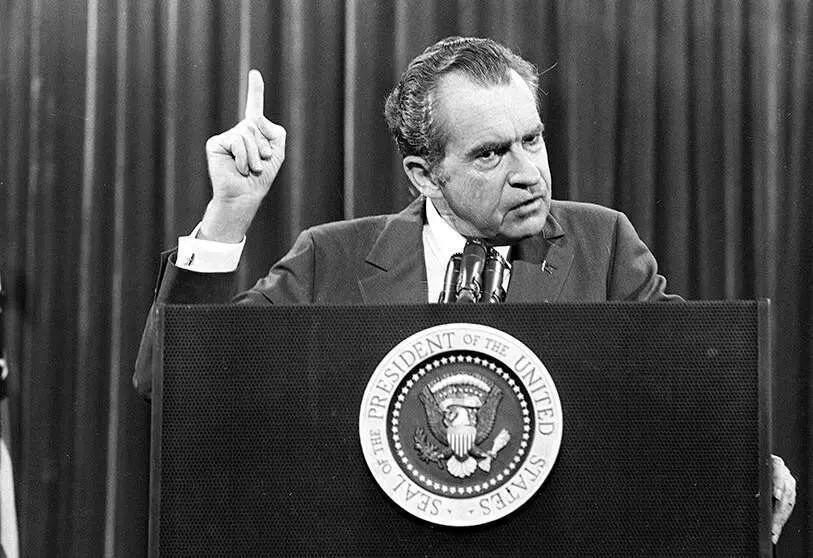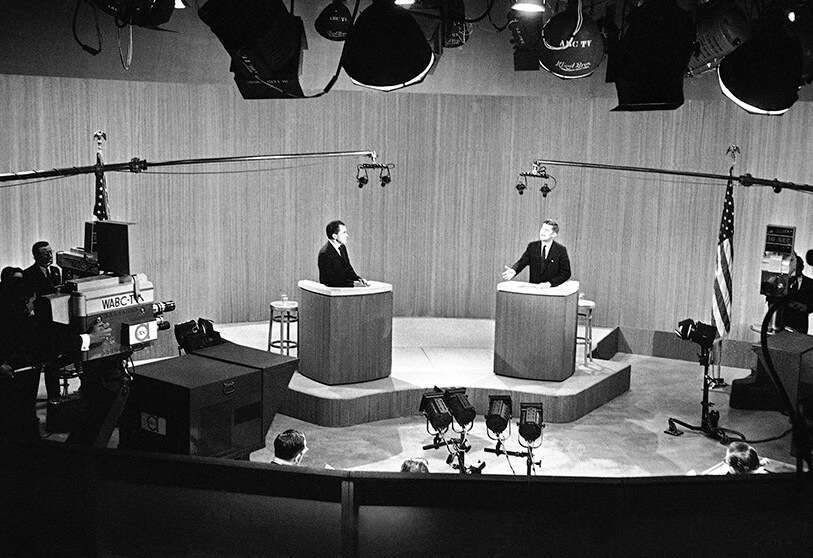Richard Nixon in memory

Eisenhower's vice president and defeated in the 1960 election by the young Kennedy after the first televised debate in a presidential campaign, Richard Nixon was able to rebound politically and win two consecutive victories in the 1968 and 1972 elections. He then became the first President to resign in 1974 to abort the impeachment process to which he was being subjected, when the mud of the Watergate case had reached his administration and his campaign staff, involved in a case of espionage of his Democratic rivals and other electoral ploys. Dicky tricky was called by the liberal press headed by the Washington Post, which treated him with rigorous viciousness, with no other intention than to leave in history a reference to a political figure who brought together around him all the ills of a democracy that had bombarded the Vietnamese relentlessly in the 1960s and splashed through the stagnant waters of the economic and social crisis of the 1970s. The Republicans themselves let the rubbish smear the disenchanted face of the president who had assumed defeat in Vietnam, initiated détente with the Soviet Union and opened up relations with China in order to put a definitive and early end to communist Maoism. The story told by the winners of the establishment, whoever they were and whoever they were, was merciless and Nixon assumed the bitter role he had played without any possibility of defence. There was not a single minute of mercy since then, for 40 years. Not a single gesture of compassion in public opinion.

Surely Donald Trump has appreciated with his campaign team the relentless effects of dominating thought. And the mechanisms that American democracy has to elect victims and heroes in its account of events. But his persistent attempt to make possible the unimaginable counter-version of the election results in 2020 and his irrational attack on the democratic system, labelling it as fraudulent, may have consequences that undermine his image, if he has not perceived the difficulty of combating a way of understanding democracy and life, which consists of accepting politics and turning the corresponding page of history so that its corrosive ink does not smudge the rest of the narrative. Trump seems to place himself above or on the fringes of the political procedures he claims to despise. But he does not make it clear enough whether he is capable of being so firm in the face of the long journey of history when Twitter becomes an old and outdated mechanism of communication in less time than a rooster crows. And when a new generation wants to understand what was the foundation and nature of their destiny, and who were the leaders who in the past contributed most and best to their renewed purpose of staying.
At Columbia University's School of Journalism, still in the 1990s, there was a hands-on activity in which students attended a simulation of a press conference recorded on a cassette tape. A whiny, hoarse voice on account of excessive drinking and political disputes said goodbye to American society by attacking the press with harsh words and curses against its iniquity. It was the voice of Nixon, a voice that told the students and future leaders of the establishment at the time of the miseries of an imperfect system that was imperfect only because of that voice that spoke, and they listened attentively. The young people who were then, and who today dominate the discourse on which the relentless story of history will be reconstructed tomorrow, took notes.

